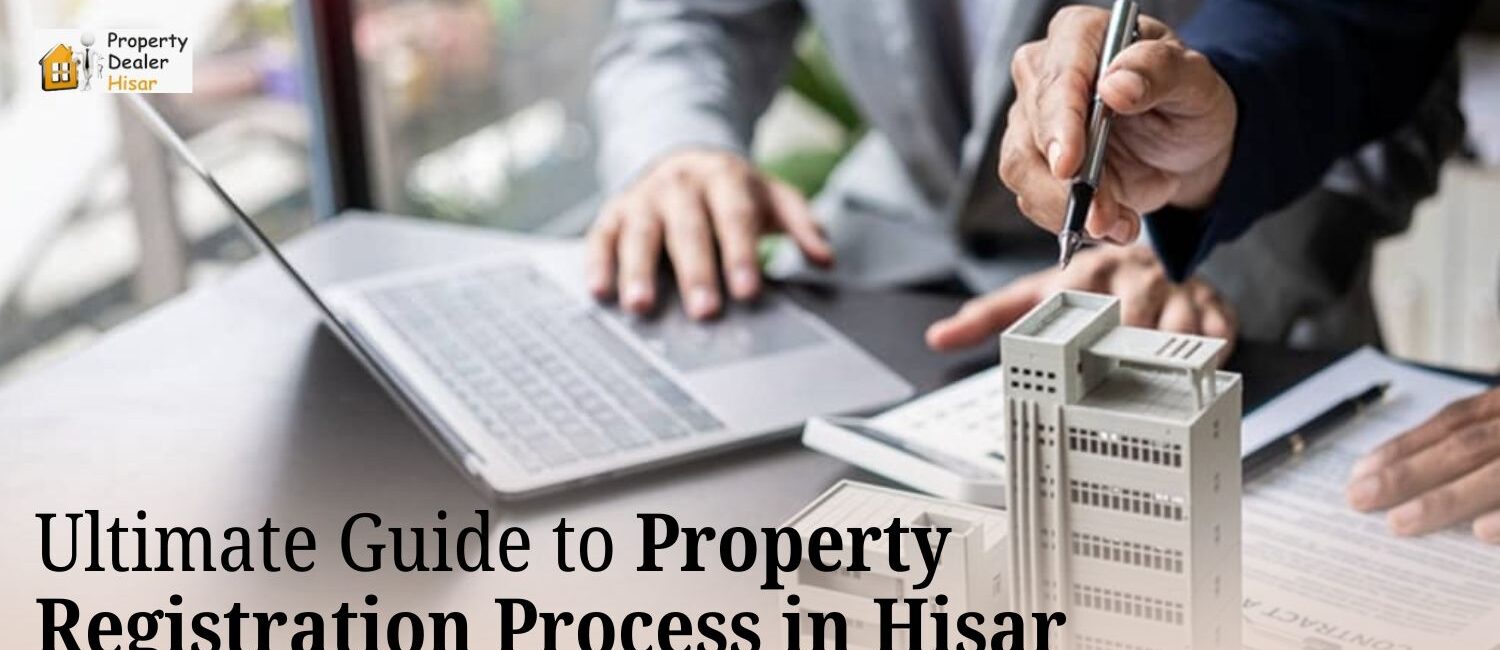
Purchasing property is one of the most significant investments of a lifetime, and ensuring that the property is legally registered is an essential part of the process. The property registration process in Hisar, like the rest of India, is governed by legal procedures to ensure that the buyer becomes the official owner of the property. If you are planning to buy a property in Hisar, this guide will walk you through the entire property registration process in simple steps.
1. Understanding Property Registration
Before diving into the steps, it’s important to understand what property registration means. Property registration is the legal process of recording the sale or transfer of property rights with the relevant authorities, which in India is done through the local sub-registrar office. Once the property is registered, the buyer’s name is officially recorded in government records, protecting their ownership rights. Without registration, your ownership is not legally recognized, even if you have paid for the property.

2. Prepare All Necessary Documents
To begin the registration process, you must ensure you have all the required documents ready. These documents typically include:
- Sale Deed: The most important document, the sale deed, outlines the terms and conditions of the sale and transfer of property. It must be signed by both the buyer and the seller.
- Proof of Identity: Both parties need to provide identity proof such as Aadhaar card, voter ID, or passport.
- Proof of Address: You will need a recent utility bill, ration card, or bank statement as proof of address.
- Passport-sized Photographs: Generally, two or more recent passport-sized photographs of both the buyer and the seller are required.
- Property Documents: These include the original title deed, tax receipts, and encumbrance certificate (proving that the property is free from legal dues).
- Power of Attorney: If the seller is unable to appear in person, a power of attorney may be required to authorize another person to sign the documents on their behalf.
Having all these documents prepared in advance ensures that the registration process goes smoothly and avoids any delays.

3. Calculating Stamp Duty and Registration Charges
In India, stamp duty and registration fees are mandatory charges that must be paid at the time of property registration. The stamp duty is calculated based on the market value or the transaction value of the property, whichever is higher. In Hisar, stamp duty charges typically range from 6% to 7% of the property value, depending on whether the property is urban or rural.
Additionally, the registration fee is usually a fixed amount that is around 1% of the total property value. It is essential to calculate these costs before proceeding with the registration to avoid any financial surprises. These fees must be paid at the time of registration, so it’s advisable to check the latest rates with the sub-registrar office.
4. Visit the Sub-Registrar Office for Registration
Once you have all the documents and have paid the stamp duty, the next step is to visit the sub-registrar office. In Hisar, the property registration office is typically located in the local tehsil or sub-registrar’s office. Both the buyer and the seller must be present at the office, along with two witnesses, to sign the sale deed.
At the sub-registrar office, the following steps will take place:
- Verification of Documents: The sub-registrar office will verify all the documents you’ve submitted, including the identity proof, sale deed, and stamp duty payment receipt.
- Signature on Sale Deed: Both parties (buyer and seller) will sign the sale deed in the presence of the sub-registrar and witnesses.
- Fingerprinting: The fingerprints of the buyer and seller are taken as part of the official registration procedure.
- Issuance of Registration Receipt: Once the sale deed is signed, the sub-registrar office will issue a receipt acknowledging the property’s registration. This receipt is proof of registration and can be used for future reference.
It is crucial to ensure that all signatures are in place and that the sale deed is free from any errors. Any mistake in the documents could cause delays or even rejection of the registration.
5. Obtaining the Registered Sale Deed
After the property has been registered, the final step is obtaining the registered sale deed. The original sale deed, with the official stamp from the sub-registrar office, will be sent to you by post or made available for pickup, depending on the office’s procedure. This document is the proof of your ownership, and it is important to keep it in a safe place.
The registered sale deed is your legal document of ownership and is necessary for any future transactions or disputes regarding the property. It’s advisable to make copies of this deed and store them securely.

6. Tips to Avoid Common Mistakes
While the property registration process is relatively straightforward, there are a few common mistakes buyers often make. Here are some tips to avoid them:
- Cross-Check Property Titles: Always ensure that the seller has clear ownership of the property. Check if there are any legal disputes or unpaid loans against the property.
- Accurate Property Value Declaration: Do not undervalue the property when calculating stamp duty, as this can lead to legal trouble in the future.
- Get Legal Help if Needed: If you’re unsure about any part of the process, it’s always a good idea to consult a legal professional or real estate agent who can guide you through the process.
- Keep Copies of All Documents: Ensure you have copies of all important documents, including the sale deed, payment receipts, and property-related papers.
Conclusion: Property Registration Process in Hisar
The property registration process in Hisar is an essential step in securing your ownership rights. By following the steps outlined in this guide, you can ensure that your property purchase is legally sound and free from complications. From preparing the necessary documents to paying stamp duty and completing the registration at the sub-registrar office, each step is crucial for a smooth transaction. Be thorough, stay informed, and consult experts when needed to avoid errors and enjoy peace of mind as a new property owner.

